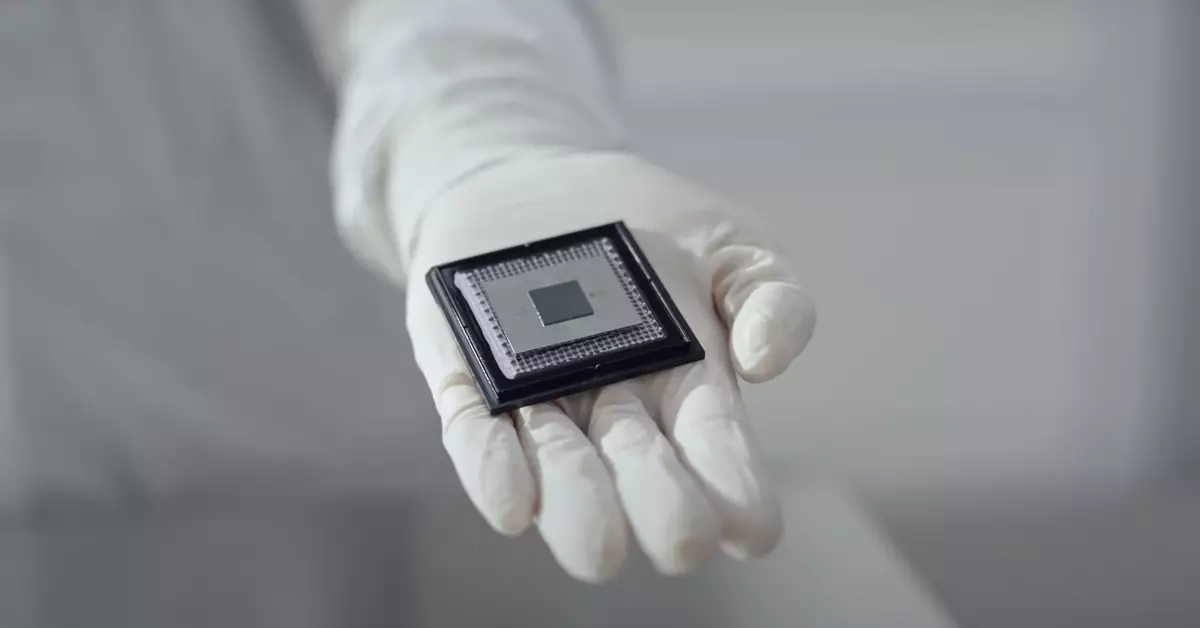As humanity leans deeper into advanced technology, the conversation surrounding quantum computing becomes more prominent. Experts predict that, in an ideal scenario, quantum computers could potentially render today’s encryption protocols obsolete. Such advancements carry significant implications for cybersecurity, as they threaten the very fabric of digital communication. The scenario sounds like a plot from a science fiction novel, yet the stakes are alarmingly real. However, recent commentary from Google’s Quantum AI team, particularly from COO Charina Chou, reveals a more nuanced reality surrounding the capabilities of quantum technology today.
Google’s newly developed Willow chip stands at the forefront of these discussions. Dubbed a “breakthrough” in quantum computing, Willow has generated interest across various sectors. However, in an enlightening conversation with The Verge, Chou emphasizes that the Willow chip currently lacks the ability to compromise modern cryptographic systems. Despite claims of its potential to tackle a computing challenge that would take a conventional supercomputer ten septillion years, the actual implementation of 105 physical qubits raises red flags regarding its practicality and real-world application.
The White House’s 2022 warning about the risks of a “cryptanalytically relevant quantum computer” (CRQC) paints a dire picture, suggesting that such technology could profoundly disrupt everything from government communications to financial transactions. The timeline offered by Chou indicates that breaking widely used encryption methods, such as RSA, is still a decade away, further dampening the hyperbolic claims surrounding quantum breakthroughs. The requirement of approximately 4 million physical qubits to genuinely threaten computational security highlights a significant gulf between current technology and future capabilities.
Moreover, the skepticism towards claims from researchers—particularly from China—regarding the ability of smaller scale quantum machines to break RSA encryption underscores the complexity of the field. While these claims spark curiosity and excitement, experts urge caution, suggesting that much of the supposed progress may be overestimated. Chou’s comments imply a need for a grounded understanding of the hurdles still ahead before quantum computing can fulfill its apocalypse-style promises.
To counteract the looming threat of quantum advancements, companies—Google included—are investing in post-quantum cryptography (PQC). Following revelations about surveillance practices from the Snowden leaks, the focus of many tech companies has shifted towards defending against a future where current encryption methods may no longer be secure. The National Institute of Standards and Technology (NIST) has taken proactive steps since 2016, initiating competitions to cultivate quantum-safe encryption standards. With the recent introduction of finalized algorithms, NIST is undertaking a crucial role in shaping the landscape of cryptography in anticipation of quantum threats.
While the excitement around quantum computing persists, the emerging realities dictated by experts like Chou remind us that we are still navigating uncharted waters. As we make strides in the development of technologies like the Willow chip, it is essential to remain vigilant and realistic about their capabilities and implications. The road ahead may be fraught with challenges, but by investing in the right defenses today, we can prepare for the unforeseen transformations that tomorrow’s quantum technologies promise.

